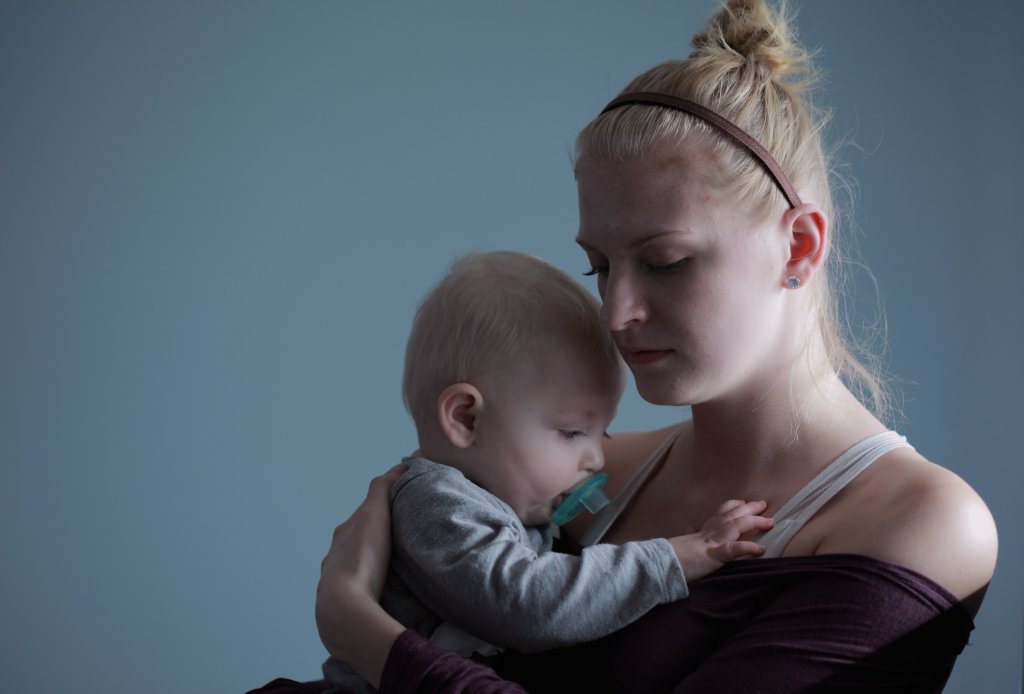Ever since Lindsay Clancy was arrested for taking the lives of her three children before attempting to take her own, Jan. 2023, the reality of postpartum psychosis has been thrust into mainstream media. Before Clancy’s lawyers cited the postpartum condition as the main contributing factor into her unthinkable act, psychosis didn’t seem to be on many people’s radar as a response to giving birth.
Psychosis isn’t something that only involves seeing or hearing things that aren’t there, it’s a collective list of symptoms. Some of the symptoms outside of visual and auditory hallucinations is, delusional thinking, paranoia, belief of your thoughts being broadcasted, aggression, disorganized speech, and many more.
But just because someone is experiencing psychosis doesn’t mean they’re experiencing all of the symptoms and most people that are in a psychotic episode are too disorganized to carry out any meaningful thought out plan. As a therapist that specializes in psychotic disorders, it’s tragic to see that the disorder may have contributed to the deaths of Clancy’s children and I also recognize this particular case is acting as a springboard for an important dialogue.
Since this case has hit the news cycle, moms on TikTok are sharing their own experiences with postpartum psychosis and the hashtag #postpartumpsychosis has over 66 million views. Video after video show moms talking about how psychosis presented for them while others are explaining their experience with postpartum depression or anxiety.
Kelsi Ullom is one of the moms that shared her experience in hopes to help other parents recognize the symptoms for themselves or their partners. In her video that has nearly 900K views, Ullom explains that even though she had been experiencing hallucinations, delusions and other psychotic symptoms, she didn’t tell anyone because due to fear of someone taking her baby away.
Ullom’s fear is not unique. Many people that experience the extreme end of postpartum mental health issues are afraid to tell their health care providers due to fear of their child being removed from their care. I was a trained mental health professional when I had my last child and vividly remember tearfully telling my midwife that I was afraid to inform her of how bad my postpartum anxiety had gotten for that very reason.
The stigma around mental health issues and one’s ability to care for themselves, let alone care for their children isn’t new. We’ve seen the conversation play out publicly when a celebrity parent has a mental health crisis. But when it comes to postpartum mental health disorders, seeking professional help is imperative in many instances, especially with psychosis.
With how extreme postpartum psychosis can be, waiting for a far off appointment isn’t the best plan because it is considered a crisis that requires immediate attention. Yet, due to the nature of psychosis, most people experiencing it have no idea they’re in the midst of psychosis because their thought processes are distorted by delusions. This is why it’s important for partners to be able to recognize the signs.
Brains are powerful and psychosis isn’t so cut and dry. You don’t think in a way that would make sense if you spoke it out loud and delusions are so strong that you can’t be convinced that they’re incorrect no matter what evidence you have to the contrary.
When trying to explain what psychosis was like to my husband after returning home from having to hospitalize a client, I told him to imagine that his mom just walked in the room and asked him who he was talking to. He looked confused and said, “but she would see you,” so I followed up with, “would she? If she told you she didn’t see anyone and she began to look concerned, how would you feel?” Ultimately, just that quick exchange gave him a small glimpse into the fear, confusion and frustration psychosis could cause.
It’s not an easy condition and when you throw in hormones readjusting and caring for a newborn on top of it all, it seems quite cruel that there isn’t more education around the possibility. Hopefully, with the increased conversation around postpartum psychosis due to the sad tragedy of the Clancy children, new parents and medical providers alike will be more aware of the signs.
Symptoms of postpartum psychosis is a mental health emergency and needs immediate intervention from professionals.






































